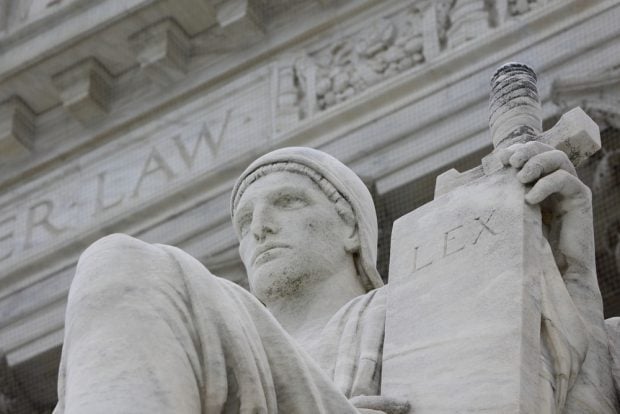 Source: Shutterstock.
Source: Shutterstock.
A federal appeals court affirmed a lower court's ruling that dismissed a complaint by former Alabama One Credit Union President/CEO John Dee Carruth who claimed the state's ex-governor and his lawyer conspired with others to place the cooperative into conservatorship and led to the former executive's dismissal.
"Carruth has pled no facts plausibly establishing that the Governor and Byrne made the decisions causing Carruth harm," the U.S Court of Appeals for the 11th Circuit in Atlanta ruled last week. "What's more, even if we could assume away the basic causation problem permeating the entire complaint, Carruth has also failed to plausibly allege that Bentley and Byrne violated his clearly established Constitutional rights. From the face of the complaint, it is clear that he cannot defeat their entitlement for qualified immunity. The district court did not err in dismissing the federal claims."
Recommended For You
Carruth, who served as CEO from 1998 to 2015 for the $627 million Alabama One in Tuscaloosa, sued former Alabama Gov. Robert Bentley and his legal advisor, David Byrne, after the credit union was conserved by the state regulator, the Alabama Credit Union Administration, which ended Carruth's executive tenure.
He alleged the governor and his lawyer conspired with others to improperly exert regulatory pressures on the credit union to force it to settle lawsuits brought by a friend and former law partner of Byrne. Carruth filed an array of Constitutional violation claims against Bentley and Byrne that included the denial to petition the government, retaliation for exercising his right to petition the courts and conspiracy to violate his rights, along with three supplement state law claims.
A U.S. District Court in Alabama dismissed all of these civil rights claims on qualified immunity grounds and declined to consider supplemental claims, according to the Appeals Court ruling. Qualified immunity protects individual public officials from civil lawsuits as long as their actions do not violate clearly established statutory or Constitutional rights that a reasonable person would have known.
The beginning of Alabama One's long and complex legal battles, and its subsequent financial issues, can be traced back to 2008 when a used car dealer and a longtime Alabama One member Danny Ray Butler took out a $3.5 million business loan, and its $3.5 million in added principal, which financed the construction and operation of a speculative sewer treatment facility. It went bankrupt in 2014 and resulted in millions in losses for the credit union.
This business loan also led to a 2011 ACUA and NCUA Letter of Understanding and Agreement with Alabama One, which included several issues but focused on the credit union's relationship with Butler. Once the credit union successfully addressed the corrective actions, the LUA was lifted in April 2013.
Six months later in October 2013, however, Butler was indicted by a federal grand jury.
In its 51-count indictment, the jury charged Butler with wire fraud and bank fraud that involved a check-kiting scheme that caused Alabama One to risk losing $1.2 million. He also defrauded $1.7 million from the U.S. Small Business Administration and $50,000 from a finance company.
Soon after news of the indictment broke, Alabama One members raised questions about the credit union's relationship with Butler. They filed lawsuits over losses they claimed they suffered because of the loans that the credit union allegedly made for Butler in their names. Those lawsuits were followed by even more legal actions by members, employees, state regulators and others claiming fraud, a hostile workplace environment, compliance and state law violations, conspiracy, breaches of fiduciary duties and the waste of corporate assets.
Butler pleaded guilty to the charges in the indictment and was sentenced to three years in prison in July 2014. He was released from prison on July 29, 2016, according to the Federal Bureau of Prisons.
By August 2015, the state regulator conserved Alabama One, claiming the credit union officers and employees showed persistent patterns and practices of allowing insiders to have loans on preferential terms and conditions, falsified loan information for insider auto loans and accepted things of value in exchange for making loans, among other charges. The senior executive staff was fired and board members were removed.
Carruth and other employees have repeatedly denied these allegations and filed the federal lawsuit that challenged the state's takeover of the credit union, the termination of employees and the removal of board members.
By the end of 2014, Alabama One posted a net loss of $7.8 million and a net loss of $8 million by the end of 2015, NCUA financial performance reports show. By the end of 2016, the credit union posted a small net income gain of $70,841.
After Alabama One was released from conservatorship in February 2017, it showed a net income gain of $3.2 million in 2017 and $6 million in 2018, according to NCUA financial performance reports. At the end of September, the credit union recorded a net income gain of $4.5 million.
© 2025 ALM Global, LLC, All Rights Reserved. Request academic re-use from www.copyright.com. All other uses, submit a request to [email protected]. For more information visit Asset & Logo Licensing.






